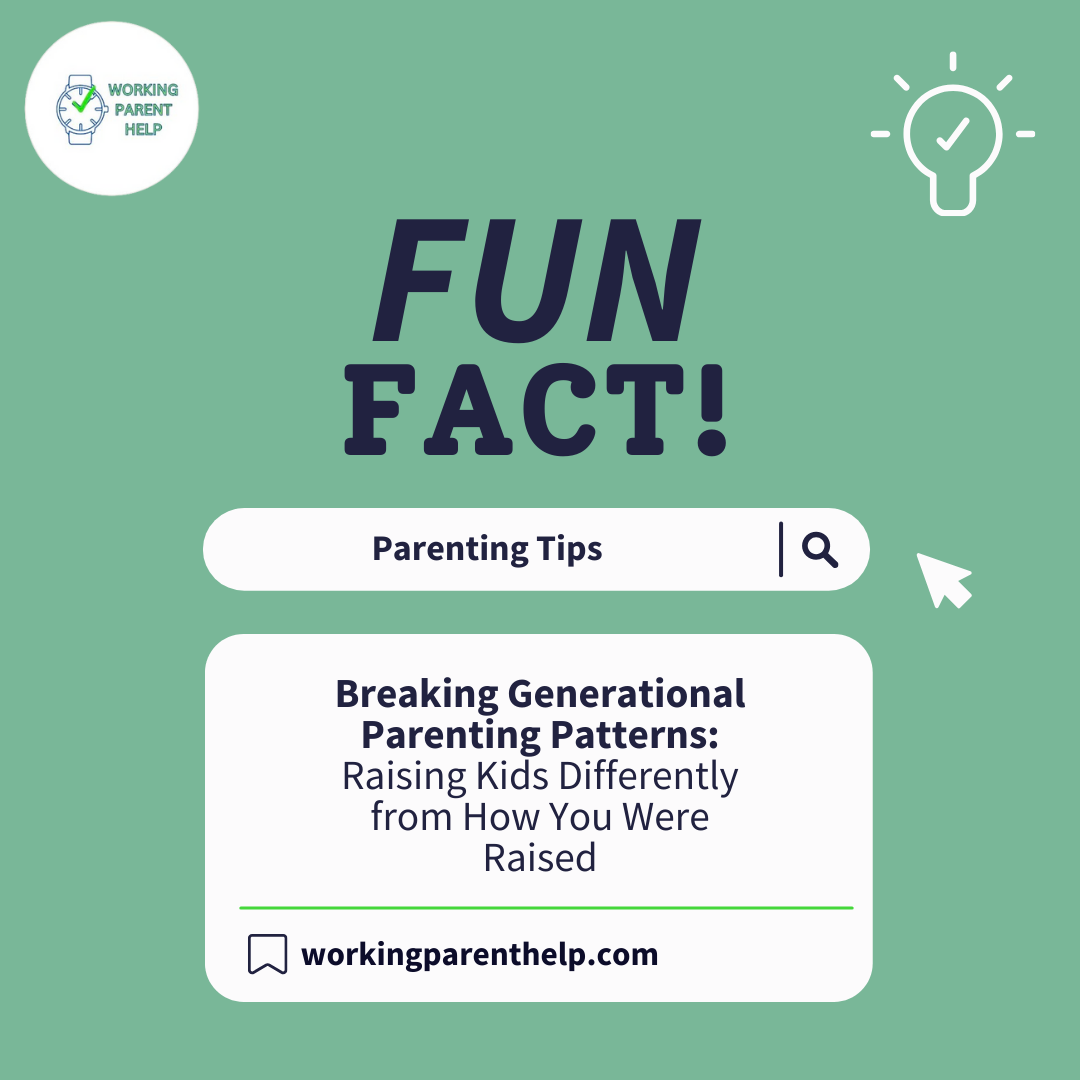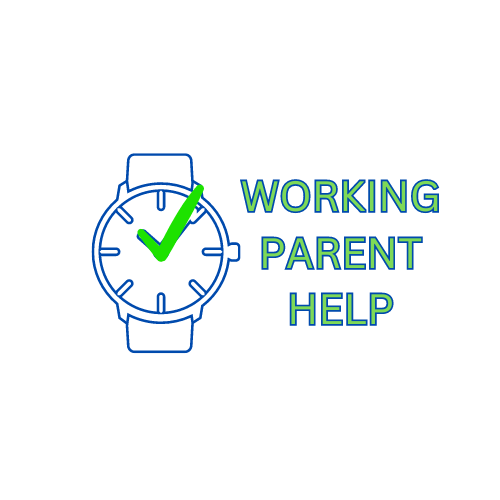
Breaking Generational Parenting Patterns: Raising Kids Differently from How You Were Raised
Parenting is a wild ride, full of unexpected detours, mysterious stains, and the occasional existential crisis over whether your kid will ever willingly eat a vegetable. But if you find yourself saying, "I swore I’d never do this like my parents did!"—welcome to the club.
Breaking generational parenting patterns isn’t about blaming our own parents; it’s about learning, evolving, and maybe, just maybe, raising kids who don’t need therapy just to process their childhood (or at least, less of it).
1. Reflect on Your Own Childhood
Before changing how you parent, it’s important to take a trip down memory lane—hopefully with less trauma and more nostalgic snacks.
-
Ask yourself: What worked? What didn’t?
Did your parents lean toward authoritarian, permissive, or somewhere in between?
-
What lessons do you cherish, and what habits make you cringe?
Maybe your parents had a "because I said so" approach, and you want to create a home where explanations and choices matter. Or perhaps your childhood was all about "tough love," and you’re looking to bring in more hugs and heart-to-hearts. Reflecting helps you make intentional changes instead of just reacting.
2. Embrace Conscious Parenting
Let’s be honest—most of us are just winging it. But conscious parenting means actually thinking about how we parent rather than running on autopilot.
-
Respond instead of react.
-
Validate feelings instead of dismissing them.
-
Focus on connection over control.
This doesn’t mean you let your kid negotiate bedtime like they’re in the Supreme Court, but it does mean considering their emotions instead of just barking orders.
3. Communicate Openly and Emotionally
If your childhood communication style was "don’t ask, don’t tell, don’t cry unless you want something to really cry about," this one’s for you. Kids today are growing up in an era where emotional intelligence is a superpower.
-
Encourage open discussions about feelings.
-
Normalize saying, "I don’t know, but let’s figure it out together."
-
Apologize when necessary (yes, even parents mess up!).
Breaking generational cycles means shifting from "children should be seen and not heard" to "children should be heard, understood, and maybe bribed with a snack if they won’t stop talking."
4. Set Boundaries Without Fear
If "boundaries" in your house growing up meant a locked bedroom door (that was immediately unlocked by a well-placed butter knife), you’re not alone.
Healthy boundaries teach kids respect—both for themselves and for others. And yes, that means saying "no" without guilt.
-
"No, you can’t have candy for breakfast."
-
"No, I won’t pick up your socks for the 12th time today."
-
"No, you can’t climb into my bed and turn me into a human jungle gym at 3 AM."
When done with love and consistency, boundaries help children feel secure, even if they pretend you’re ruining their lives in the process.
5. Give Yourself Grace
Breaking generational cycles isn’t a one-time decision—it’s a lifelong process. Some days, you’ll nail it. Other days, you’ll yell about spilled juice like a cartoon villain and realize you sound just like your mom. It’s okay.
-
You’re learning.
-
You’re growing.
-
You’re allowed to make mistakes.
Remember, every generation has a different parenting style. The goal isn’t to be perfect—it’s to be present, intentional, and the kind of parent your kids feel safe and loved with.
Share Your Story
Have you found yourself breaking generational parenting habits? What’s worked for you? Share your experiences in the comments below or check out our other parenting resources for more sanity-saving tips!
